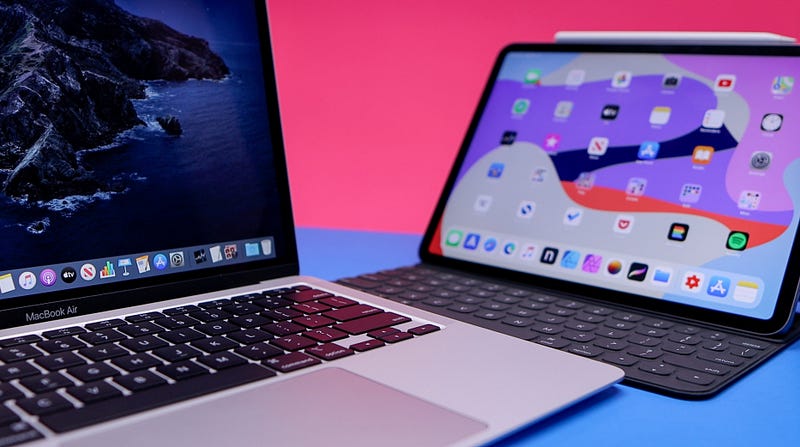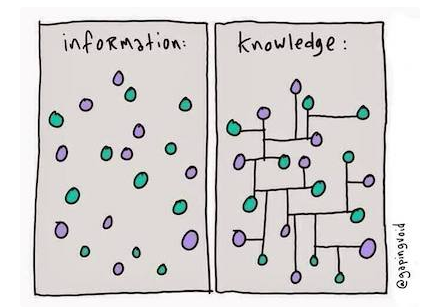The seven-level system for books, podcasts, articles, and tweets.

As a UK based doctor, YouTuber, instructor, and podcaster, Ali Abdaal is one of the most productive people on the internet.
In one of his recent videos, Ali states that his additional income streams generate more than three times his income as a junior doctor in the UK’s National Health Service.
More than one million people follow his Youtube channel, and his e-mail list has more than 50.000 subscribers.
Despite his achievements, Ali remains a humble, reflective, fun person. Apart from Niklas Göke, he’s the one under 30 content creators I admire most.
In his recent video, he combines cognitive science with life hacks and shares the seven levels that lead to remembering (almost) everything we read.
Level 1: The way most people read
Many people are very passive while consuming content. They read through books and articles or listen to podcasts but don’t engage with the material. Soon, they forget what they learned.
Scientists call this our natural forgetting curve. We lose information over time when we don’t retain it.
Yet, many people continue to equate reading with learning. But this isn’t the case as my experience underlines.
Before building my first business, I had read dozens of books for each stage in the business lifecycle. Yet, as time went on, I forgot most of the advice I consumed. I was the perfect example of a level one reader.
At level one, we’re not using our brainpower. Reading in this way is mere entertainment.
Level 2: Take the next step after passive reading
At this level, you highlight everything you find interesting, either with a finger on your kindle, the trackpad on your browser or with a highlighter in your physical book.
While highlighting gives us the illusion of knowledge, it’s an ineffective learning method. Level two consumption still doesn’t improve your retention capacity.
As before, the natural forgetting curve will kick in, and as the days go on, you’ll soon have forgotten what you wanted to remember.
Yet, highlighting will become a great help if you use it as a learning strategy for levels three to five.
Level 3: Make your highlights work for you
Before we dive into how Ali does a systematic highlight revision, let’s see why it works from a learning perspective.
Our brain strengthens and consolidates memories of information it encounters regularly and frequently. With spaced repetition, you revisit the same information regularly at set intervals.
Science on learning has shown spaced repetition to be the most effective learning method to remember new content.
To use his highlights in a spaced repetition manner, Ali uses Readwise. It’s an online service that imports the highlights from your consumption tools. For blog articles, this might be Instapaper, for your podcasts Airr, and for your books, Kindle.
Once you’ve connected your inputs, Readwise sends you an email with 5 random highlights from your library. In one of his newsletters, Ali wrote:
“Since September 2018, the daily Readwise email is one that I’ve read religiously. Each day, I stumble upon wisdom that I chose to highlight in a previous life, and often I come across highlights from my favourite books that are spookily relevant to what’s going on in my life.”
I became a Readwise user a few months ago, but to be honest, I found the unorganized e-mail quotes pretty disturbing. Before diving into work, I don’t want to read my highlight from a book on slow sex. I unsubscribed to the daily email.
Yet, reaping the other Readwise benefits in level four kept me using this software.
Level 4: Find your holy storage palace
A highlight storage location is the golden nugget that can transform the way you read.
Remember that Readwise imports the highlights from your podcasts, articles, and books? Now you can export all the highlights into your favorite note-taking app.
By not only consuming but integrating the new knowledge into his working projects, Ali makes the most out of his time.
Here’s how I make Ali’s system work for me.
I connected my Readwise account to Medium, Twitter, Airr, and Kindle account. Every Sunday, I export the Readwise highlights to my Notion database. From there, I link the highlights to ideas for my podcast, articles, or business. In that way, I connect what I read to my current projects.
By sending your highlights to your Notion, Evernote, or Roam account, you’ll be able to work with the content you consume.
Level 5: Unlock the power of elaborative rehearsal
Elaborating means you explain and describe an idea in your own words. You consciously associate material you want to learn with what you’ve previously learned.
The more details and the stronger you connect new knowledge to what you already know, the better. By doing so, you’re generating more brain cues, and you’ll have an easier time retrieving new knowledge.
In his video, Ali says he regrets not elaborating on all the books he ever read. Here are the questions he now answers after reading a book:
- How did you discover the book?
- Who should read it?
- How do you summarize the book in three sentences?
- How did the book change you? (Life, behavior, thoughts, ideas that have changed as a result of reading the book)
- What are your top three quotes?
Level 6: Become an expert for your content
Now, if you’ve reached level five, you’ll remember more than most content consumers. You’ll have evolved from a passive reader to a person who applies what they read.
If the content is excellent, and you want to take it one step further, you can write a literary summary. To do so, focus on the points that resonated. Your result will go as close to an entire book summary as it can get.
If you decide to go all-in, make sure to mentally recall what you want to remember instead of copy-pasting your highlights. By not recalling the information from your memory, you’ll skip the learning part.
What you want to do instead is to retrieve the concepts and ideas from your own memory. While writing your summary, try to use the simplest language you can. It was Albert Einstein, who said:
“If you can’t explain it simply, you don’t understand it well enough.”
Level 7: Connecting the dots to a bigger picture

So this level is pretty complex, and even Ali admits that he hasn’t fully started using it. I had to research Evergreen notes for some hours to understand the concept behind it fully.
Evergreen notes are the modern way to organize slip-box, “Zettelkasten” notes. Originally, this concept was from Luhmann, an extremely productive academic who published more than 70 books and 500 scholarly articles in his 40 years of research.
In the Evergreen system, you spend most of your time doing deep work, like creating content and connecting the dots. Your note organization takes care of itself. Here’s how education designer Andy Matuschak describes them:
“Evergreen notes are written and organized to evolve, contribute, and accumulate over time, across projects. This is an unusual way to think about writing notes: Most people take only transient notes. That’s because these practices aren’t about writing notes; they’re about effectively developing insight: “Better note-taking” misses the point; what matters is “better thinking”. When done well, these notes can be quite valuable: Evergreen note-writing as fundamental unit of knowledge work.”
If you want to dive deeper, this blog entry is a good starting point.
In Conclusion
You might wonder whether content consumption needs to feel hard, challenging, and time-consuming. It doesn’t. If you see reading and listening as forms of entertainment and leisure, it’s fine to stay forever in the comfort of level one.
If, however, you want to get the most from what you read and use it for your life, you want to reach level five with everything you consume.
- Passive Reading
- Highlighting
- Systematic Highlight Revision
- A Central Highlight Storing Location
- Summarizing Key Principles with Elaborative Rehearsal
- Writing Literary Summaries
- Organize Your Life With Evergreen Notes
Life is a learning journey. By following Ali’s levels to remember everything you consume, you’ll soon find yourself on your path to wealth, and wisdom.
Sign up for free to the Learner’s Letter to get weekly insights on reading, learning, and growth.